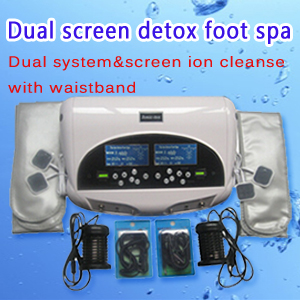How To Strong Your Bones
One in two women and one in four men over age 50 will have an osteoporosis-related fracture in her/his remaining lifetime. Yes, osteoporosis ("porous bones") affects men, too. Yet the advanced effects of bone loss -- a humped upper back or easily shattered limbs -- does not have to be in the future of people who eat wisely and exercise regularly.
Bones are living tissue. They contain nerves, blood vessels, and marrow, where blood cells are created. Bones are constantly tearing down and rebuilding themselves, like a freeway construction project that never ends. Without this repair and reinforcement of even minor weak spots, we would break bones on a regular basis.
"When a person is under 20 years of age," explains Felicia Cosman, MD, medical director of the Clinical Research Center at Helen Hayes Hospital in New York and clinical director of the National Osteoporosis Foundation, "you are forming more bone cells than you are losing." But when women near menopause, rebuilding new bone slows down. A woman's bone density begins to decrease.
Bone density is measured by a painless, low-radiation X-ray, which is translated into what Cosman describes as a "sort of confusing number" called a T-score. Basically, the patient's bone density is compared to that of an average person between 20 and 30 years old -- the time of peak bone density in a woman's life. The lower the score the greater the risk of having a fracture.
A T-score of -2.5 or below should concern a woman. It indicates osteoporosis and can justify medication. A normal score is -1 or higher. A score between -1.0 and -2.5 indicates low bone density (osteopenia).
To prevent porous, breakable bones as you age, you need to have sufficient calcium and vitamin D. The body uses calcium for a number of functions and will take it out of the bones faster than it can be laid down if your diet does not pump enough calcium into the pipeline. But calcium is not the only component -- bones are also one-third collagen, which is a protein that gives bones their flexibility.
Annemarie Colbin, PhD, author of Food and Our Bones: The Natural Way to Prevent Osteoporosis, urges us to look at the animals with the largest bones -- cows, elephants. "What do they eat?" she asks. "Leafy plants."
The biggest component of a bone-healthy diet is leafy greens, both cooked and raw, according to Colbin. "Greens give you not only calcium, but vitamin K, potassium, and other minerals and nutrients you need to lay down bone. My first three recommendations are vegetables, vegetables, vegetables," she says with a laugh.
Vitamin D is also important for strong bones, and a good source is, believe it or not, the sun. Colbin recommends being out 20 minutes a day with no sunblock, but Cosman vehemently disputes the wisdom of ever going out without sunblock and recommends a multivitamin or vitamin D supplement.
Another building block of strong bones is protein (remember that collagen?). Colbin says mix it up -- beans, fish, chicken. "You can't eat the same boring diet every day." Again, she urges you to select good-quality, properly raised, antibiotic-free protein sources. She also recommends making your own stock from animal bones -- add a tablespoon of vinegar to 8 cups of water to pull the calcium out of the bones. Throw in a carrots, onions, pepper -- and all you need is some garlic bread! If that isn't enough richness, Colbin recommends adding kombu or canten, mineral-loaded, flavorless seaweeds found in health food stores.
Whole grain bread or pasta is helpful, too. "This gives you magnesium," Colbin says. Magnesium helps maintain strong bones.
In addition, through 3D-NLS can find the most suitable health products for your bones, in order to better protect your bones.
This article is provide from [Metatron 4025 hunter],please indicate the source address reprinted:http://www.healthycarer.com/news/other/1185.html






